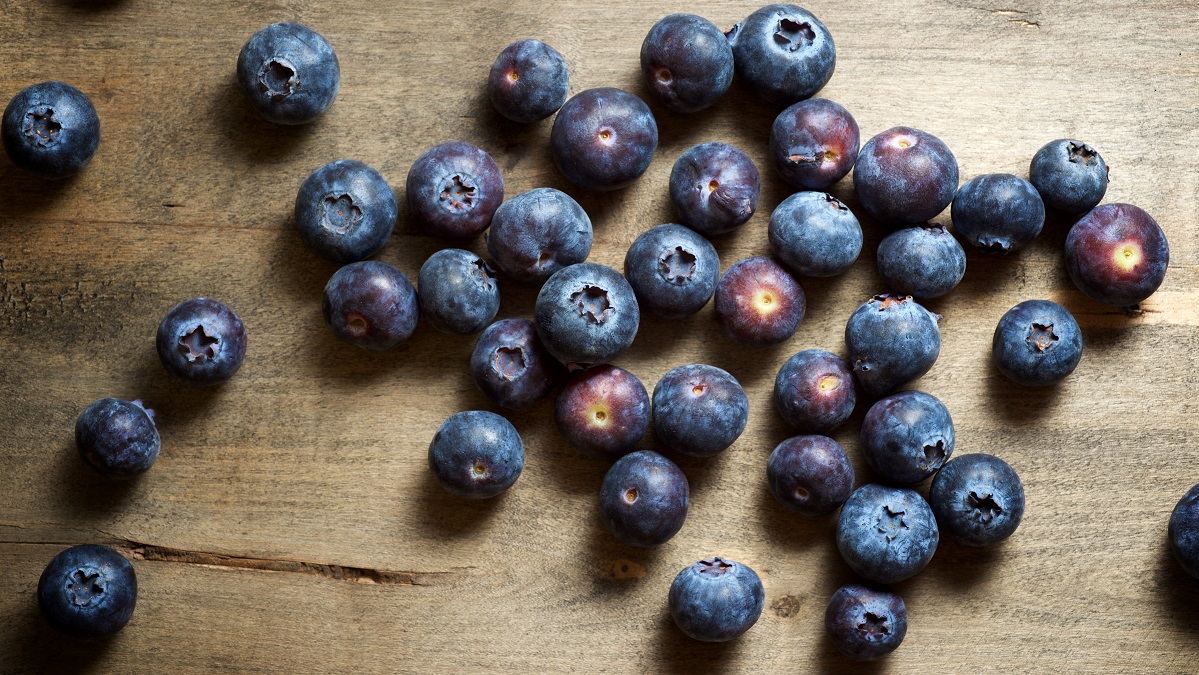Good news for the small powerhouses that are blueberries, because new research has found that eating them daily can reduce the risk of cardiovascular disease.
Scientists from the University of East Anglia led the study and set out to find whether eating blueberries could have an effect on metabolic syndrome – a condition that involves at least three of these risk factors: high blood pressure, high blood sugar, excess body fat around the waist, low levels of ‘good cholesterol’ and high levels of triglycerides (a type of fat found in the blood). Metabolic syndrome affects a third of adults in Western countries, and increases the risk of heart disease, stroke and diabetes.
READ: A surprising fact about strawberries
Study co-lead Dr Peter Curtis said: “We found that eating one cup of blueberries per day resulted in sustained improvements in vascular function and arterial stiffness – making enough of a difference to reduce the risk of cardiovascular disease by between 12 and 15 per cent. The simple and attainable message is to consume one cup of blueberries daily to improve cardiovascular health.”
So, there you have it – a cup of blueberries can really make a difference. However, it does seem like an awful lot if you’re not used to monitoring your daily blueberry intake – so here are some sneaky ways you can get more into your diet.
Add them to drinks
Even though blueberries are delicious, they don’t always have to be the star of the show. Next time you’re blending a smoothie or juice why not include some berries? The best thing is they pretty much go with everything, from mangoes to bananas.
Frozen blueberries are always good to have in your freezer because you don’t have to worry about them going off, and you can pop a handful into the blender whenever you fancy.
Include them in your breakfast
View this post on Instagram
If there’s one meal blueberries are perfect for, it’s breakfast. If you’re feeling fancy you could whip up a berry compote to go with your granola, but failing that, a handful on top of your cereal or yoghurt will make the morning tastier and healthier.
Blueberries aren’t just great for cardiovascular health; they are also full of vitamin C so can help boost your skin and smooth out wrinkles.
READ: Duckweed to take the foodie world by storm in 2023
Whip up some blueberry baked goods
View this post on Instagram
Everything from pancakes to waffles and muffins are improved by adding a few blueberries into the batter. We’re not suggesting you overload your diet with sugar, but maybe look for healthier options – like this recipe for muffins from Cookie and Kate, which suggests using honey or maple syrup as a sweet substitute.
Incorporate them into savoury dishes
View this post on Instagram
Even if you’re a berry lover, the idea of using them in dinner might seem like a step too far. But hear us out: they actually make for a perfectly tart sauce for all kinds of recipes. They traditionally pair best with duck – if you’re keen, give this recipe from Wild Blueberries a go.
And for a vegetarian dinner option, try using blueberries next time you’re making couscous – they add a sweet sharpness to the dish similar to pomegranate seeds.
READ: A surprising link between high-fat diets and pain
Not only are they good for your heart, they are among the most nutrient-dense berries. A one-cup (150g) serving of blueberries contains:
-
- 4g of fibre
-
- 24 per cent of the recommended daily intake of vitamin C
-
- 36 per cent of the RDI for vitamin K
-
- 25 per cent of the RDI for manganese
-
- small amounts of other nutrients.
They are also about 85 per cent water, and an entire cup contains only 84 calories, with 15g of carbohydrate.
Calorie for calorie, that makes them an excellent source of several important nutrients.
What are your favourite berries? How do you eat them? Let us know in the comments section below.
– With PA


I use to eat blueberries daily, however, due to the price of around $5.00 to $8.00 a punnet I had to stop. Also eating a cup a day would be even more expensive.